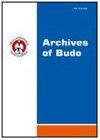世界跆拳道联合会精英选手的成功因素
IF 1.5
3区 医学
Q3 SPORT SCIENCES
引用次数: 43
摘要
本研究的目的是在波兰高级锦标赛(psc)中获得或未获得奖牌的背景下,确定选定的奥运会优秀跆拳道运动员的成功因素。材料/方法:选取64名优秀男子跆拳道选手为研究对象。参赛者根据成绩分为两组:PSC奖牌获得者和非奖牌获得者。决定运动成功的因素使用一般线性模型(GLM)进行建模。该过程一直持续到达到质量标准的最低限度,即赤池信息标准(AIC)。结果:成功的运动员(奖牌获得者)在技术、调节和柔韧性参数方面表现出显著的优势。技术技巧(例如,打击、侧踢和回旋踢)、速度、动态力量和耐力是跆拳道取得优异成绩的因素。结论:研究结果揭示了国家级跆拳道成功因素群体。关于踢脚的变量对得分的影响最大(360°dollyo chagi montong - 41%和dollyo chagi - 31%)。本文章由计算机程序翻译,如有差异,请以英文原文为准。
Success factors in elite WTF taekwondo competitors
Background The aim of the study was to identify selected success factors of elite Olympic taekwondo competitors in the context of medals that they have or have not won during Polish Senior Championships (PSCs). Material/Methods: Sixty-four elite male taekwondo competitors took part in the study. The competitors were divided into two groups on the basis of their achievements: PSC medallists and non-medallists. Factors determining sports success were modelled with the use of a general linear model (GLM). The procedure lasted until the minimum of the quality criterion, i.e., the Akaike information criterion (AIC), was reached. Results: Successful competitors (medallists) demonstrated significantly better technique, conditioning and flexibility parameters. Technical skills (e.g., strikes and side and roundhouse kicks), speed, dynamic strength and endurance were the factors that contributed to the achievement of excellent results in taekwondo. Conclusions: The research results revealed groups of success factors in taekwondo at a national level. Variables concerning kicks exerted the greatest influence on point scores (360° dollyo chagi montong – 41% and dollyo chagi – 31%).
求助全文
通过发布文献求助,成功后即可免费获取论文全文。
去求助
来源期刊

Archives of Budo
SPORT SCIENCES-
CiteScore
2.80
自引率
47.60%
发文量
0
审稿时长
>12 weeks
期刊介绍:
Archives of Budo is an international peer reviewed journal publishing articles on various aspects of the sports sciences covering education and research in martial arts and combat sports, and related areas like biomechanics, kinesiology, medicine, psychology, sociology, technologies of sports equipment, research in training, selection, performance, survival, and other interdisciplinary perspectives.
Archives of Budo editors endorse the principles embodied in the Helsinki Declaration and expect that all research involving humans has been performed in accordance with these principles. All human studies must have been approved by the investigator''s Institutional Review Board. A copy of the relevant documentation should be included with the manuscript. Furthermore Archives of Budo follows the ICMJE''s Recommendations for the Conduct, Reporting, Editing and Publication of Scholarly Work in Medical Journals.
Archives of Budo provides free, immediate and permanent online access to the full text of all articles distributed under the terms of the Creative Commons Attribution Non-commercial License http://creativecommons.org/licenses/by-nc/4.0), which permits use, distribution, and reproduction in any medium, provided the original work is properly cited, the use is non-commercial and is otherwise in compliance with the license.
 求助内容:
求助内容: 应助结果提醒方式:
应助结果提醒方式:


